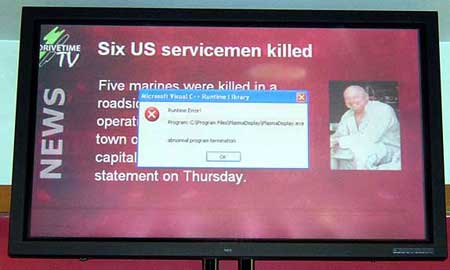
It’s three years since Sue died. Today was a lovely mild early-Autumn day. I got up early before the children woke and went by myself to her grave in the village churchyard. It was wonderfully peaceful and still. Impossible in one sense to believe that three years have passed. Impossible in another to believe that it isn’t ten.
One thing I have noticed this year, as the time of her death grows more distant, is that I think a lot about hypotheticals. What would she think about such-and-such if she were to appear now? What would she make of her children, now so much more grown-up than when she left us? What would she make of the chaotic state of the house? (I know the answer: as a fantastically orderly and tidy person she would be mightily pissed off!) Would she be worried by me going round London by Tube? (Yes.) What would she think about the war in Iraq? (She would have been keen to get rid of Saddam.) And so on…
So she lives on, in my mind, still a direct presence in my life. When, two days before she died, I decided I had to tell the children what was about to happen, and we had the most agonising conversation that any father can ever have, I said that when someone you love dies, they live on in your heart. I said that I expected Mum always to be perched on my shoulder, rather like a pirate’s parrot. Then Annie said, through her tears, “They also live on in their children. I’ve got Mum’s looks (which she has) and your eyes and…”. She paused: “… and your temper!” And Tom added: “And I’ve got Mum’s tidiness gene” (which he has).
Today, we all went out for a lovely lunch in her favourite restaurant (which also happens to be in our village) and then we went to a garden centre and bought a lilac tree which I then planted in the front garden where she had planned to put it. And at 15:08 I stamped on the earth and muttered (to my left shoulder): “Well, you can tick that off the list now, sweetheart!” (Because she left a list of things to be done, and I’m not making as much progress on it as I should.)
One of the nicest things today was that I found this photograph in my digital shoe-box. It was taken by my eldest son in April 2002, when we knew she was dying. Her hair had grown back in a beautiful wiry thatch of which she was very proud. It’s a great picture because it shows both her tenderness and her strength. It reminds me of how lucky I was to be loved by her; and of how much I miss her.





